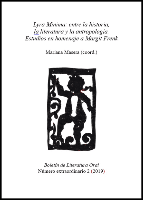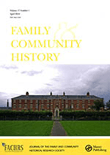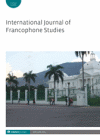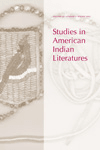
Boletin de Literatura Oral
Scope & Guideline
Bridging Disciplines Through the Study of Oral Narratives
Introduction
Aims and Scopes
- Study of Oral Traditions:
The journal focuses on documenting and analyzing oral traditions from diverse cultural backgrounds, highlighting their narrative structures, themes, and performance contexts. - Interdisciplinary Approaches:
It encourages interdisciplinary research that combines literature, anthropology, ethnography, and cultural studies, offering a holistic view of oral literature's role in society. - Historical Contextualization:
The journal often examines the historical evolution of oral narratives, linking them to socio-political contexts, cultural shifts, and historical events that shape their transmission and transformation. - Cultural Identity and Memory:
A core area of focus is the exploration of how oral literature contributes to cultural identity, collective memory, and community cohesion, especially among marginalized groups. - Contemporary Adaptations:
The journal also investigates the impact of modern media and technology on oral traditions, analyzing how these narratives adapt and thrive in contemporary settings.
Trending and Emerging
- Intersection of Oral Tradition and Popular Culture:
There is an increasing interest in exploring how oral traditions intersect with popular culture, particularly in the context of music, performance, and contemporary storytelling practices. - Gender Studies and Oral Narratives:
Research focusing on the role of gender in oral narratives is on the rise, with scholars examining how women’s voices and experiences are represented and transmitted through oral traditions. - Urban Legends and Contemporary Folklore:
The emergence of themes related to urban legends and contemporary folklore reflects a growing interest in how oral traditions adapt to modern urban environments and societal issues. - Digitalization of Oral Traditions:
Research examining the impact of digital media on the preservation and transformation of oral traditions is gaining prominence, highlighting the relevance of technology in contemporary storytelling. - Transnational Perspectives on Oral Literature:
There is a notable trend towards transnational studies that analyze oral literature across cultural boundaries, emphasizing migration, diaspora, and the blending of oral traditions in global contexts.
Declining or Waning
- Focus on Traditional Folktales:
There has been a noticeable decrease in studies specifically centered on traditional folktales, possibly due to a growing interest in contemporary adaptations and urban narratives. - Regional Studies Limited to Specific Areas:
Research exploring oral traditions solely within specific geographic regions, such as localized studies of oral literature, is becoming less frequent, as scholars increasingly adopt broader, comparative approaches. - Historical vs. Contemporary Analysis:
The balance between historical analysis of oral literature and contemporary interpretations is shifting, with fewer papers dedicated to the historical context of oral narratives. - Children's Literature in Oral Traditions:
The exploration of children's literature within the realm of oral traditions appears to be waning, with fewer studies focusing on how oral narratives influence children's storytelling. - Isolation of Oral Literature from Other Forms:
There is a declining trend in studies that isolate oral literature from other literary forms, as more researchers are recognizing the interconnectedness of oral and written traditions.
Similar Journals

Slovensky Narodopis-Slovak Ethnology
Fostering Global Dialogue on Cultural DynamicsSlovensky Narodopis-Slovak Ethnology is a leading academic journal dedicated to the exploration of ethnology and cultural studies, published by the Slovak Academy of Sciences at the Institute of Ethnology. With an Open Access policy since 2013, it strives to make high-quality research readily accessible to a global audience, enhancing the dialogue around Slovak cultural heritage and broader anthropological topics. The journal holds a notable position in the field, currently ranked Q2 in anthropology for 2023, indicating its substantial contribution to the discipline. It is indexed in Scopus, with a current rank of 245 out of 502 in the Social Sciences category, reflecting its value within the academic community. Researchers and students alike can look forward to a rich array of original research articles, reviews, and essays that not only delve into Slovak ethnology but also engage with international perspectives, thereby enriching the understanding of cultural dynamics and practices.

REVISTA CHILENA DE LITERATURA
Fostering innovative discourse in literary studies.REVISTA CHILENA DE LITERATURA, published by Universidad de Chile, Facultad de Filosofía y Humanidades, is a premier open-access journal that has been at the forefront of literary scholarship since its inception in 2004. With its ISSN 0718-2295, the journal focuses on a wide array of topics within the field of literature and literary theory, striving to foster intellectual discourse and innovation. It has gained notable recognition, reflected in its Q2 category ranking in 2023, positioning it among the top journals in its field within the Scopus database, where it ranks #513 out of 1106 journals, placing it in the 53rd percentile. Hailing from Chile, the journal also serves as a vital platform for researchers and students to disseminate their work, enhancing the global dialogue in literature. With a history of convergence from 2007 to 2023, REVISTA CHILENA DE LITERATURA is committed to advancing literary research and its implications in contemporary contexts, making it an essential resource for anyone engaged in literary studies.

Musica Oral del Sur
Unveiling the Past, Shaping the Future of Music StudiesMusica Oral del Sur is a prominent academic journal published by the Junta Andalucía through the Centro Documentación Musical Andalucía. With its ISSN 1138-8579 and E-ISSN 2445-0391, this pioneering publication has championed open access since 1995, providing a vital platform for scholars dedicated to the exploration of traditional and contemporary oral music practices in Southern Spain and beyond. The journal is essential for researchers, professionals, and students interested in musicology, ethnomusicology, and cultural studies, promoting scholarly discourse through a rich assortment of articles, reviews, and field research. Set in the vibrant cultural landscape of Granada, the journal encourages the fusion of theoretical insights with practical implications, making significant contributions to the understanding of oral musical traditions. By fostering accessible academic dialogue, Musica Oral del Sur plays an invaluable role in preserving and highlighting the heritage of Southern musical expressions while addressing contemporary issues in the field.

Acta Histriae
Unlocking the Past: Accessible Research for AllActa Histriae is a premier open-access journal published by the Historical Society of Southern Primorska, Koper (HSSP), dedicated to advancing the field of history. With an ISSN of 1318-0185 and an E-ISSN of 2591-1767, this journal has established itself as a crucial platform for scholarly dialogue since its inception in 2009. Operating from Slovenia, Acta Histriae has garnered recognition for its rigorous academic standards, achieving a remarkable Q1 ranking in the history category for 2023. With an impressive Scopus rank of #412 out of 1,760 in Arts and Humanities – History, it holds a percentile of 76, reflecting its significant impact in scholarly research. Acta Histriae not only publishes original research articles but also fosters interdisciplinary studies, making it invaluable for historians, researchers, and students alike. Its open-access model, adopted in 2013, ensures that the latest historical scholarship is accessible to a global audience, playing an essential role in the dissemination of knowledge across borders.

FAMILY & COMMUNITY HISTORY
Exploring the Ties that Bind: Unraveling Family and Community NarrativesFAMILY & COMMUNITY HISTORY, published by Routledge Journals, Taylor & Francis Ltd, is a pivotal academic journal focusing on the intricate dynamics of family and community history within the fields of History, Sociology, and Political Science. With its ISSN 1463-1180 and E-ISSN 1751-3812, the journal serves as a valuable platform for researchers and scholars to explore the historical narratives that shape familial and communal identities across different time periods and geographical contexts. Although it currently resides in the Q4 category for both History and Sociology and Political Science, its commitment to publishing innovative research makes it a noteworthy contributor to ongoing discussions in these fields. The journal operates without an Open Access model, ensuring a curated approach to the dissemination of research while maintaining academic integrity. Established with the aim of bridging the gap between historical inquiry and contemporary societal issues, FAMILY & COMMUNITY HISTORY is an essential resource for those dedicated to uncovering and understanding the foundational roles that families and communities play in our collective past and future.

INTERNATIONAL JOURNAL OF FRANCOPHONE STUDIES
Illuminating the Global Impact of Francophone VoicesThe INTERNATIONAL JOURNAL OF FRANCOPHONE STUDIES, published by INTELLECT LTD, serves as a significant platform for exploring the multifaceted dimensions of Francophone culture and its impact across various disciplines. With an ISSN of 1368-2679 and E-ISSN 1758-9142, this journal supports a diverse scholarly discourse in areas such as Cultural Studies, Gender Studies, History, Linguistics, Literature, and Sociology, among others. As of 2023, it is categorized in Q4 for multiple fields and Q3 for Literature and Literary Theory, underscoring its evolving academic presence. Researchers, professionals, and students can benefit from its rich repository of critical analyses and innovative perspectives that foster an understanding of the Francophone world from a global viewpoint. Although it does not offer open access options, its rigorous peer-review process ensures high-quality contributions that are essential for anyone engaged in Francophone studies. Situated in the United Kingdom, the journal has forged an academic legacy since its inception and continues to be a vital resource for those studying the intersections of language, culture, and identity.

Historelo-Revista de Historia Regional y Local
Exploring the Depths of Regional HistoriesHistorelo-Revista de Historia Regional y Local is a distinguished open-access journal published by UNIV NAC COLOMBIA, SEDE MEDELLIN that has been enriching the fields of regional and local history since its inception in 2009. With an ISSN of 2145-132X, this journal serves as a pivotal platform for scholarly discourse, challenging traditional narratives and illuminating the diverse historical experiences of Colombia and beyond. The journal ranks in the Q2 category for both Cultural Studies and History, and holds a Q3 classification in several other related fields, indicating its substantial contribution to academic research. Positioned within the 53rd percentile for History and the 41st percentile for Cultural Studies in the Scopus indexing metrics, Historelo is pivotal for researchers, professionals, and students seeking to explore the rich tapestry of local histories and cultural narratives. With access freely available, it not only promotes knowledge dissemination but also invites collaboration and interdisciplinary research, making it an essential resource for anyone interested in the historical complexities of their communities.

Studies in American Indian Literatures
Celebrating the Rich Tapestry of Indigenous StorytellingStudies in American Indian Literatures, published by University of Nebraska Press, is a prominent journal dedicated to the exploration and analysis of the richly diverse literary traditions of Native American cultures. With an ISSN of 0730-3238 and an E-ISSN of 1548-9590, this journal stands out in the field of Literature and Literary Theory, classified in the Q3 category within the Scopus rankings, reflecting its significant contribution to scholarship in the arts and humanities. The journal's impact factor, while not explicitly listed, and its rank of 181 out of 1106 in its category signifies its esteemed position in the academic community, attracting researchers, professionals, and students interested in Native American literature, culture, and history. Although it does not provide open access options, it serves as a critical platform for interdisciplinary dialogue and enhances the understanding of American Indian narratives, making it an essential resource for anyone engaged in this significant field of study.

Folklor/Edebiyat-Folklore/Literature
Illuminating Heritage: A Scholarly Journey into Folklore and LiteratureFolklor/Edebiyat-Folklore/Literature is an esteemed interdisciplinary journal dedicated to the exploration of folklore and literature, published by Rector CIU Cyprus International University. Established as a crucial platform for scholarly discourse, it has been an Open Access journal since 2015, empowering researchers and students from around the globe to share their findings without barriers. With its ISSN 1300-7491 and E-ISSN 2791-6057, the journal aims to bridge the gap between Anthropology, Cultural Studies, and History, as reflected in its commendable ranking in the 2023 Category Quartiles, where it holds Q3 in Anthropology and Q2 in both Cultural Studies and History. The journal is essential for anyone looking to deepen their understanding of folkloric narratives and their literary implications, contributing significantly to ongoing dialogues in these vibrant fields of study. Set in the culturally rich context of Cyprus, and operating within a converged time frame from 2018 to 2024, Folklor/Edebiyat serves as a dynamic resource for researchers, professionals, and students alike, providing access to a diverse range of scholarly articles that inspire new interpretations and discussions.

Milli Folklor
Connecting Cultures Through Scholarly DiscourseMilli Folklor, published by GELENEKSEL YAYINCILIK LTD STL, stands as a significant platform for scholarly discourse in the fields of Arts and Humanities and Cultural Studies, with an ISSN of 1300-3984 and E-ISSN 2146-8087. As a prominent Turkish journal, it has been actively contributing to the academic community since its inception in 2002, and it is set to converge its publishing journey through to 2024. With a commendable Q2 category ranking in both the Arts and Humanities (miscellaneous) and Cultural Studies categories, the journal reflects a solid standing within the academic landscape, sitting in the 40th percentile for general arts and humanities and the 34th percentile in social sciences. Milli Folklor emphasizes the exploration and preservation of folkloric traditions, cultural practices, and societal narratives—facilitating interdisciplinary research that transcends national boundaries. Although primarily a print journal, the insights shared in its pages serve as invaluable resources for researchers, professionals, and students alike who seek to deepen their understanding of cultural phenomena. The journal aims to enrich scholarly discussions while broadening readers' perspectives on the intricate tapestry of culture and society.